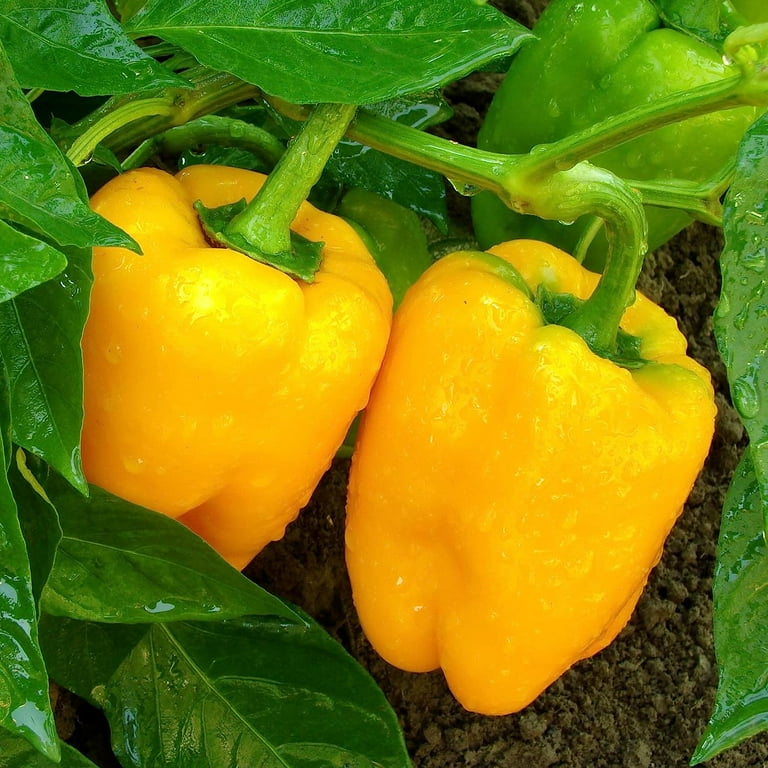Best Fertilizers for Peppers: A Comprehensive Guide to Boost Your Harvest
Best Fertilizers for Peppers: A Comprehensive Guide to Boost Your Harvest
Blog Article
Organic Vs. Synthetic Fertilizers: Which Is Best for Supporting Healthy And Balanced Pepper Plants?
In the world of nurturing healthy pepper plants, the selection between natural and synthetic plant foods stands as a crucial choice with far-ranging ramifications. While both options purpose to give important nutrients to support plant growth, the nuances of their effect on the soil, plant wellness, and the atmosphere stimulate an argument that echoes throughout the horticulture neighborhood. Comprehending the distinctive benefits and potential pitfalls of each plant food type is crucial for pepper farmers seeking to maximize their yields while maintaining an eco-conscious and sustainable approach.
Advantages of Organic Plant Foods
Organic fertilizers use a lasting and environmentally-friendly technique to beneficial pepper plants, offering necessary nutrients without using synthetic chemicals. These all-natural fertilizers are originated from natural sources such as compost, manure, bone dish, and algae, advertising soil health and wellness and biodiversity. Unlike artificial plant foods, natural options launch nutrients gradually, guaranteeing a well balanced and steady supply for pepper plants to grow.
One significant advantage of natural plant foods is their ability to boost dirt framework and water retention. By enhancing dirt health, organic plant foods promote beneficial microbial activity, which helps in nutrient uptake by pepper plants. Additionally, organic fertilizers minimize the danger of chemical run-off, securing water resources from pollution and guarding the atmosphere.
Furthermore, organic plant foods add to lasting dirt fertility by promoting the development of valuable soil microorganisms. These organisms help break down raw material, releasing nutrients in a kind that is easily accessible to pepper plants. best fertilizers for peppers. By cultivating a healthy and balanced dirt environment, natural plant foods sustain lasting pepper cultivation methods that benefit both plants and the setting
Downsides of Artificial Fertilizers
Artificial plant foods, in contrast to their natural equivalents, pose numerous downsides when utilized to nurture pepper plants, influencing both plant wellness and ecological sustainability. One major drawback of synthetic plant foods is their propensity to seep nutrients from the soil swiftly.
Moreover, the overuse of synthetic fertilizers can add to water pollution. Excess plant foods not taken in by plants can remove into water bodies, causing eutrophication, where algae blossoms diminish oxygen degrees in the water, damaging marine life. Moreover, synthetic fertilizers are normally originated from non-renewable resources, such as fossil fuels, adding to carbon emissions and ecological degradation during their manufacturing.
Nutrient Absorption Contrast
When contrasting artificial and organic plant foods in terms of nutrient absorption, natural fertilizers have the advantage of offering a much more well balanced and slow-release resource of nutrients. Organic fertilizers have a selection of macro and trace elements that are not only advantageous for the plants yet also promote healthy dirt microbial task, which helps in nutrient uptake.
Furthermore, natural fertilizers improve soil structure and water retention capacity, permitting pepper plants to gain access to nutrients a lot more effectively. This better dirt top quality assists in origin advancement, enabling better nutrient absorption. Artificial plant foods, although originally enhancing plant growth due to their high nutrient focus, might hinder long-lasting nutrient absorption by degrading dirt health and wellness in time.
Ecological Influence Factors To Consider

On the various other hand, synthetic plant foods, although typically even more focused and instantly offered to plants, can have detrimental results on the atmosphere otherwise used appropriately (best fertilizers for peppers). Their production needs high power inputs, leading to greenhouse gas exhausts and adding to climate modification. The overflow of excess artificial fertilizers can pollute water sources, leading to eutrophication and hurting water communities.
Finest Plant Food Practices for Peppers
To achieve this, it is important to adhere to ideal fertilizer methods customized to basics the particular demands of pepper plants. One vital practice is to execute a dirt examination before using any type of fertilizers.
Another vital practice is to feed pepper plants at the correct time. Generally, peppers profit from getting fertilizer at planting and afterwards once more when they begin to blossom. Over-fertilizing can result in nutrition inequalities and harm the plants, so it is essential to comply with advised application prices.
In addition, selecting a well balanced fertilizer with an NPK ratio that matches pepper plants' needs is essential. Organic fertilizers, such as garden compost or manure, can be superb options as they release nutrients slowly and improve soil structure over time. Artificial fertilizers can supply a fast nutrient increase when needed. Eventually, integrating natural and synthetic fertilizers carefully can aid support healthy pepper plants while lessening environmental influence.
Final Thought

Organic fertilizers offer an environmentally-friendly and sustainable strategy to beneficial pepper plants, offering crucial nutrients without the usage of synthetic chemicals. Unlike synthetic plant foods, natural options release nutrients slowly, making sure a steady my blog and well balanced supply for pepper plants to prosper.
Artificial plant foods, in comparison to their organic counterparts, position different negative aspects when used to nourish pepper plants, impacting both plant health blog and wellness and ecological sustainability. When contrasting synthetic and organic fertilizers in terms of nutrient absorption, natural plant foods have the benefit of offering a much more well balanced and slow-release resource of nutrients.In addition, natural plant foods boost dirt structure and water retention capacity, allowing pepper plants to accessibility nutrients extra successfully.
Report this page